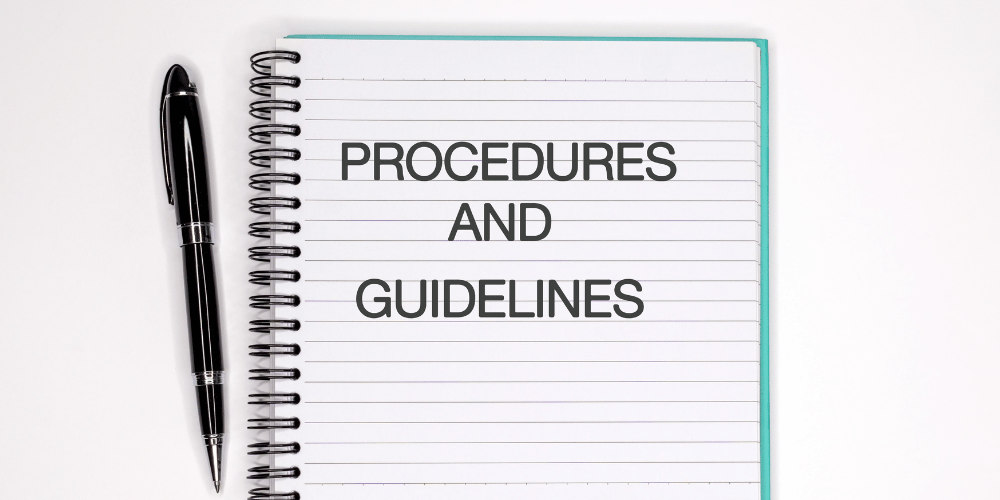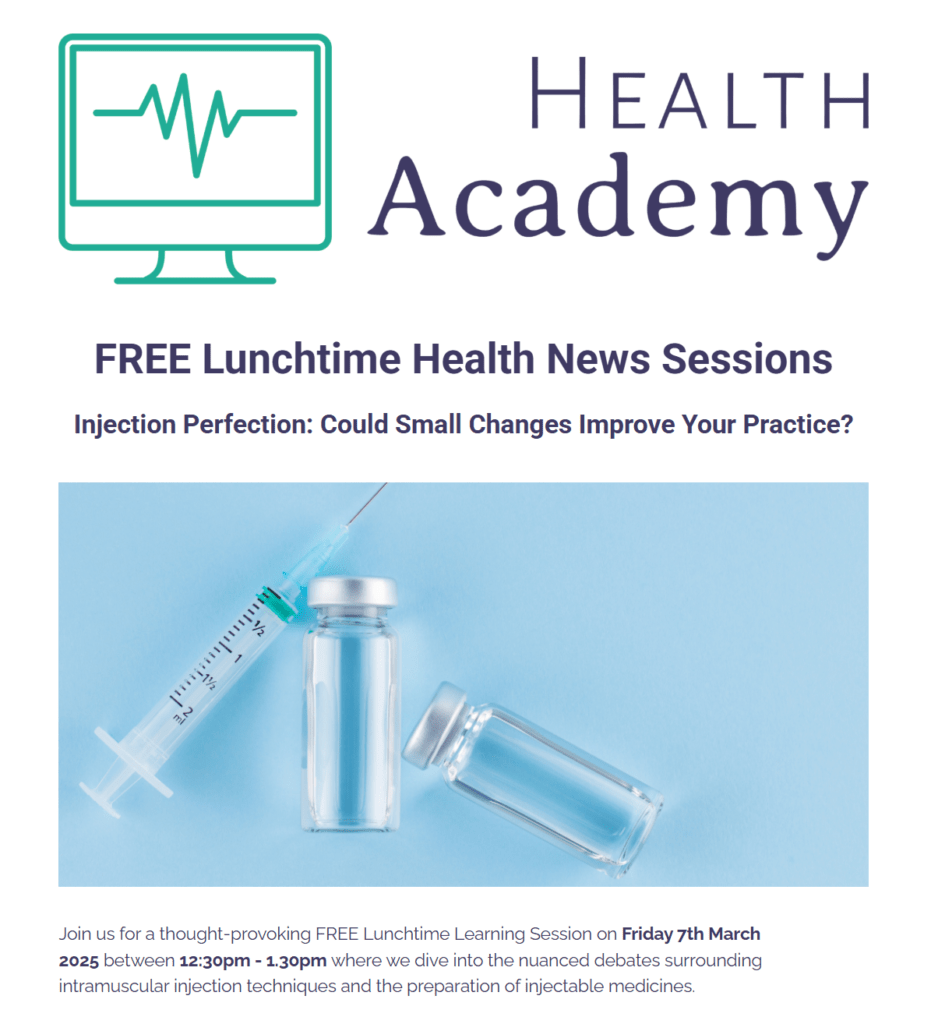
Delegation in healthcare is a valuable practice that allows the workload to be shared among a team. However, when it comes to injections—particularly in the context of childhood immunisations and travel health—delegation requires careful consideration, especially when the person administering the injection has not conducted a risk assessment themselves.
Page 20 of the RCN immunisation competencies states this as one of the competencies:
“Checks that the vaccine has been appropriately prescribed via a Patient Specific Direction (PSD) or is authorised to be supplied and/or administered via a Patient Group Direction (PGD)”
Many health care professionals are unclear on the legal mechanisms that allow for safe administration of prescribed medicine. We attempted to address this in one of our our earlier blogs in 2024: ‘Can Healthcare Assistants (HCAs) Administer RSV Vaccines?’. This became quite a topical area when the RSV vaccine was added to the national immunisation programme in September 2024. In the blog, we focused on addressing the specific question of who could give those vaccines specifically.
This blog will take delegation a bit broader and explore the key guidelines and considerations, including the role of Patient Group Directions (PGDs) and Patient Specific Directions (PSDs), and provide a framework for understanding when delegation may be appropriate.

The NICE guidelines on PGDs explicitly state that delegation of a task involving PGDs is not permitted. A PGD is a written instruction that allows specified healthcare professionals to supply or administer a medicine to groups of patients without individual prescriptions. According to the guidelines:
This means that for childhood immunisations or travel vaccinations administered under a PGD, the person giving the injection must be appropriately trained, competent, and have carried out the risk assessment themselves. And they must do the whole task from start to finish from assessing to consenting to administering and documenting.

In contrast, Patient Specific Directions (PSDs) provide more flexibility. A PSD is a written instruction from a prescriber, such as a GP or nurse prescriber, that allows medicines to be administered to a named patient.
When working under a PSD, delegation of injections is permissible, but it comes with important caveats:
The person administering the injection must be appropriately trained and competent to do so. This includes being familiar with the disease they are giving the injection for, how and why it works, injection techniques, recognising adverse reactions, and knowing what to do in the event of an emergency.
The PSD must be clear, unambiguous, and specific to the patient. The instructions should detail the medicine, dosage, route, and timing. And it MUST be in writing. Verbal instructions are not acceptable. More information on the requirements of PSD’s can be found on the very helpful Specialist Pharmacy Service (SPS) website.
The delegating clinician remains accountable for ensuring that the individual administering the injection is competent.
National protocols are a newer legal mechanism for administering injections under delegation and are the only way that further parts of the task can be divided up legally (e.g. one person draws up, another administers it). At the time of writing they are only in place for COVID and Flu vaccines. Occupational health often uses other legal mechanisms too such as written orders. But the same principles of delegating appropriately apply to all legal mechanisms for the purposes of this blog.

Whether for childhood immunisations or travel health vaccines, the person administering the injection must understand the medicine being given. This includes knowledge of its indications, contraindications, side effects, and storage requirements.
The primary concern in any delegation is patient safety. If the individual administering the injection has not carried out a risk assessment themselves, they may lack the contextual understanding of the patient’s needs, medical history, or potential contraindications. This is particularly important in childhood immunisations, where timing and spacing of vaccines can impact their effectiveness, or in travel health, where a patient’s itinerary and individual risk factors must be considered.
Clear documentation and communication are essential. If a PSD is in place, it must be documented in the patient’s notes. Additionally, the delegating clinician should ensure that the person administering the injection understands the rationale for the vaccine and any specific considerations to address questions and aftercare appropriately.
The person administering the injection must be trained in recognising and managing adverse reactions, such as anaphylaxis. This is particularly important in general practice settings where immediate access to emergency equipment and support is critical. If they are not a registered member of staff then they must have access to a registrant on site to do the assessment (of what could be an acutely unwell patient!). We also wrote a blog about this in 2024: Can Nurses Work in a Vaccination Setting Without a Doctor on Site?.
Delegation in the absence of proper risk assessment can have legal and ethical implications. If something goes wrong, both the delegating clinician and the person administering the injection may be held accountable. There is a useful section on the implications of poor delegation on the NMC website.

Childhood immunisation schedules are complex, with specific requirements for timing and spacing of doses. Delegation in this context must consider:
If the person administering the vaccine has not conducted the risk assessment themselves, these considerations may be overlooked, increasing the risk of errors. And another important factor here is vaccine hesitancy which is a big problem. Parents may have questions or concerns which need to be confidently and adequately addressed. Sometimes help is needed to make vaccine decisions, particularly when children are involved. And for travel health – often cost considerations need to be weighed up too.

Travel vaccinations often require a detailed risk assessment, including the patient’s destination, planned activities, and medical history. Delegation in travel health is further complicated by:
In these cases, delegation should only occur when the person administering the vaccine has been adequately briefed and trained.
Page 37 of the RCN Travel Health Nursing: Career and Competence Development document states:
“Concerns have previously been raised of a trend that some travel health providers were not performing a risk assessment, but instead sending the traveller to a private service or instructing them to independently identify their vaccine needs online. Following this, the original provider then administered vaccines identified as being “recommended”. This practice is considered unsafe. Those who ‘just give vaccines’ according to information the traveller has obtained or identified, puts the individual health care practitioner at significant risk. Knowledge to understand the pre travel risk assessment and provide appropriate advice remains essential.”

To ensure safe delegation in general practice:
Practices should have clear protocols outlining when and how delegation is permissible. The NICE guidelines and SPS may help with this.
Ensure all staff administering injections are fully trained and competent. Health Academy have a wide selection of courses that might help such as our New to Immunising: 2 day course for Registered Healthcare Professionals or our New to Immunising: 2 day course for Health Care Support Workers.
Standardised checklists can help ensure all necessary risk assessments and considerations have been addressed. This might start with general training checklists in the form of competencies. Every vaccinator should sign the RCN Immunisation Knowledge and Skills Competence Assessment Tool. For travel health, there are two additional sets of competencies: the RCN Travel Health Nursing: Career and Competence Development and the RCPSG Competency Assessment Tool for Travel Health Practitioners. Additionally, the NICE guidelines outline requirements for developing or working under PGDs, depending on the staff member’s role. All of Health Academy’s courses follow these standards to achieve these competencies.
Regular audits of delegation practices can identify areas for improvement and ensure compliance with guidelines. If working in England, the Care Quality Commission (CQC) expects systems or processes to be in place to assess, monitor and mitigate the risks relating to the health, safety and welfare of patients.

Delegation of injections can be a practical solution to workload pressures in general practice, but it must be done with patient safety as the priority. Working under a PGD does not allow for delegation, but under a PSD, it is possible when clear protocols, training, and communication are in place. In the contexts of childhood immunisation and travel health, where risk assessments are critical, practices must take extra care to ensure that delegation does not compromise the quality of care.
By following NICE guidelines and the advice of SPS and the regulatory bodies like the NMC, GPC and GMC, understanding the differences between PGDs and PSDs, and prioritising patient safety, healthcare professionals can ensure they delegate responsibly and legally while maintaining high standards of care.







Join us for a thought-provoking FREE Lunchtime Learning Session on Friday 7th March 2025 between 12:30pm – 1.30pm where we dive into the nuanced debates surrounding intramuscular injection techniques and the preparation of injectable medicines.
Giving you written and video content to answer all your questions on primary care education from Phlebotomy to Travel Health.
Subscribe now to be kept updated with our latest posts and insights.
Start typing to search courses, articles, videos, and more.